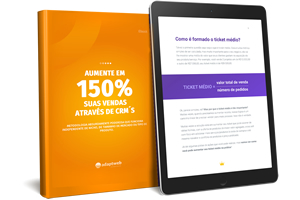In 2019, more than 250 million antibiotic prescriptions were written and filled in the United States alone. It’s important for patients and health care professionals to do everything they can to keep the antibiotics currently in use effective for as long as possible. Here, we’ll discuss the potential side effects of drinking on antibiotics. We’ll also cover how to do your part to reduce the risk of antibiotic-resistant infections. While antibiotics are commonly prescribed, they can have some side effects, including vomiting, diarrhea, bloating, abdominal pain and appetite loss. Before introducing antibiotics, it was relatively common for people to die from what we see as minor infections today, such as strep throat.
Alcohol may interact with prescription medications in several ways. Even if you don’t take them at the exact same time, drinking alcohol during the course of antibiotics can reduce how well your treatment works. Drugs.com provides accurate and independent information on more than 24,000 prescription drugs, the 7 best online sobriety support groups of 2021 over-the-counter medicines and natural products. This material is provided for educational purposes only and is not intended for medical advice, diagnosis or treatment. Data sources include Micromedex (updated 2 Jan 2024), Cerner Multum™ (updated 16 Nov 2023), ASHP (updated 10 Jan 2024) and others.
Doctors use oxazolidinones to treat abdominal, skin, lung, and urinary tract infections. Nausea is a common side effect of antibiotics, and drinking alcohol may worsen this symptom in some people. Keep in mind that antibiotics are often prescribed on a short-term basis. Consider waiting until you’re off the medications to have your next drink.
- Most antibiotics are prescribed on a short-term basis, and it is best to temporarily avoid alcohol until you are no longer taking your medication.
- Still, you may want to hold off from enjoying your favorite cocktails until you finish treatment.
- Drinking alcohol tends to dehydrate the body and may prolong bladder irritation.
- Alcohol can also worsen digestive side effects and turn into blood or mucus in stool, severe diarrhea, intense stomach cramping or pain, fever, uncontrollable vomiting.
Other antibiotics may lead to unpleasant side effects like nausea, vomiting, dizziness, or even drowsiness, which can also be made worse by drinking alcohol. Although data are not optimal, it is reasonable to advise avoidance of alcohol consumption in patients taking isoniazid. A disulfiram-like reaction and a possible increased risk of hepatitis are potential concerns. The oxazolidinone class of antibiotics, including linezolid and tedizolid, are typically used in the treatment of resistant Gram-positive infections (80). Concomitant use of alcohol with antimicrobials is believed to either decrease efficacy or lead to toxicity/ADR (6, 7). The classic example of a feared medication interaction with alcohol is the “disulfiram-like” reaction.
Can you drink alcohol with amoxicillin?
Drinking alcohol while experiencing a UTI increases the strain on the liver, which is already working to overcome the infection. A person can also develop an allergy how to stop drinking alcohol without aa or rehab to cephalexin if they have taken penicillin previously. It happens when someone takes penicillin and their immune system generates IgG and IgM antibodies.
Is it safe to mix alcohol and antibiotics?
While robust data are lacking, recent studies have determined that alcohol may be used moderately and cautiously when taking tetracyclines. In rare cases, people may experience seizures with fluoroquinolone treatment. People should avoid red wine and tap beers when taking linezolid. They should also avoid other foods that contain tyramine, such as strong cheeses and smoked meats. Drinking alcohol while taking these antibiotics may make them less effective.
It is a common belief that concomitant use of alcohol with antibiotics either will cause toxicity/ADR or will decrease efficacy (6, 7). The evidence behind these beliefs is poor and controversial (Tables 2 to to4).4). The purpose of this review was to present the available literature on clinically significant interactions between oral antibiotics and alcohol to help guide prescribing and patient education in this area. Another type of antibiotic that comes with a specific warning not to take alongside alcohol is metronidazole.
While there is not a specific interaction that will lower amoxicillin’s effectiveness, in general, you should avoid drinking alcohol if you are sick and being treated for an infection. Alcohol can lead to dehydration, interrupt your normal sleep, and may hinder your body’s natural ability to heal itself. Consuming alcohol while taking antibiotics can impact the healing process and, depending on the medication, cause serious side effects. If you’ve ever been prescribed antibiotics for a bacterial infection, you may have been advised to avoid drinking alcohol while taking them. Antibiotics are one of the most commonly prescribed and important drug classes in medicine. Rest, drink plenty of fluids (other than alcohol), and be sure to finish all your medication when you have an infection.
In 1964, a study stated that metronidazole may be effective for alcoholism based on 53 patients who had reduced desires to drink and lower tolerances and reported disulfiram-like reactions (47). Several early studies seemed to show benefit; however, these were uncontrolled, with limited patient numbers and follow-up (47,–51). The majority of controlled studies failed to find benefit of metronidazole in the treatment of alcoholism (52,–64).
This material is the result of work supported with resources and the use of facilities at the Veterans Affairs Western New York Healthcare System. The contents of this manuscript are not intended to represent the views of the Department of Veterans Affairs or the United States government. Alcohol is contraindicated per the package labeling due to a speculative, but not established, increased risk of seizures (122). To our knowledge, there are no data available on the PK/PD or efficacy of pyrazinamide. To our knowledge, there are no data available on the PK/PD or efficacy of isoniazid. Rifamycins may cause hepatotoxicity; however, this does not preclude use with alcohol without preexisting LFT elevations when appropriate monitoring can be performed.
What will happen if I drink alcohol?
Citrus fruits like lemons, oranges, and grapefruit are also off-limits and can worsen UTI symptoms. But drinks aren’t the only items that can bother the bladder when treating a UTI. American Addiction Centers (AAC) is committed to delivering original, truthful, accurate, unbiased, and medically current information. We strive to create content that is clear, concise, and easy to understand. Some antibiotics do not mix well with certain medicines and herbal supplements.
Mixing Antibiotics and Alcohol: Signs, Symptoms & Treatment
Delay in absorption was postulated to be due to alcohol’s inhibition of gastric emptying and the lower solubility of amoxicillin in alcohol than in water. There were no differences in the rate of elimination of amoxicillin. Read the warning label and directions on the drug packaging and heed the prescribing provider’s advice to understand possible antibiotic and alcohol interactions.
Both of these beta-lactams have the ability to upregulate glutamate transporter-1 and phosphorylated-AKT levels, which are responsible for mediating the brain reward center for alcohol intake (12). It can cause nausea, dizziness, headache, chest and abdominal discomfort, flushing, vomiting, and hangover-like symptoms. A 2020 review shows a lack of solid evidence behind how common this is, but caution is still warranted.
Use of alcohol with griseofulvin should be avoided due to risk of a disulfiram-like reaction, which may be severe. Azoles are antifungals approved for the treatment of fungal infections (88). Trimethoprim-sulfamethoxazole (TMP-SMX) is used for urinary tract infections and pneumocystis infections (74). Recent alcoholic ketoacidosis wikipedia data do not support that nitrofurantoin and alcohol causes a disulfiram-like reaction or other adverse reactions/toxicities. One study found that minocycline led to a modest reduction of alcohol intake in mice (37). Azithromycin is listed in an NIH report on harmful interactions with alcohol (4).
There are several antibiotics that people should not mix alcohol with. Not only can they interfere with the way the antibiotics work, but they can also cause a number of harmful side effects. As well as its antibacterial effect, linezolid reduces the action of enzymes called monoamine oxidase-A and monoamine oxidase-B. Tyramine is a substance present in tap beers and red wine, among other products.









